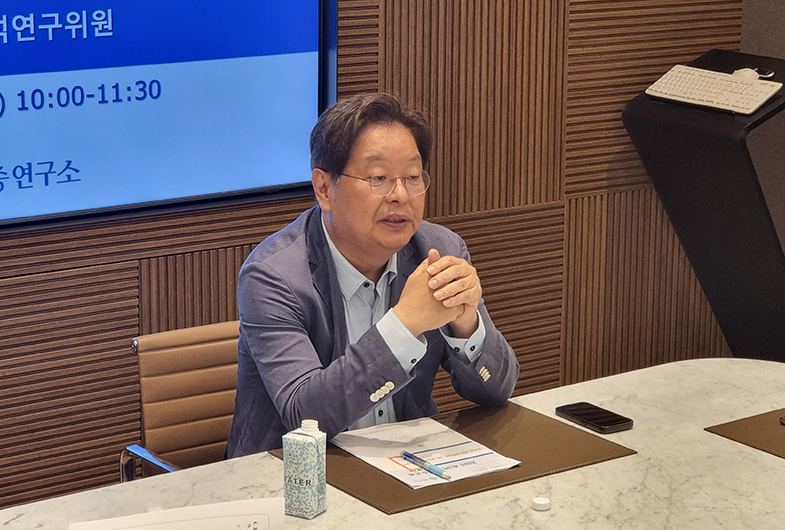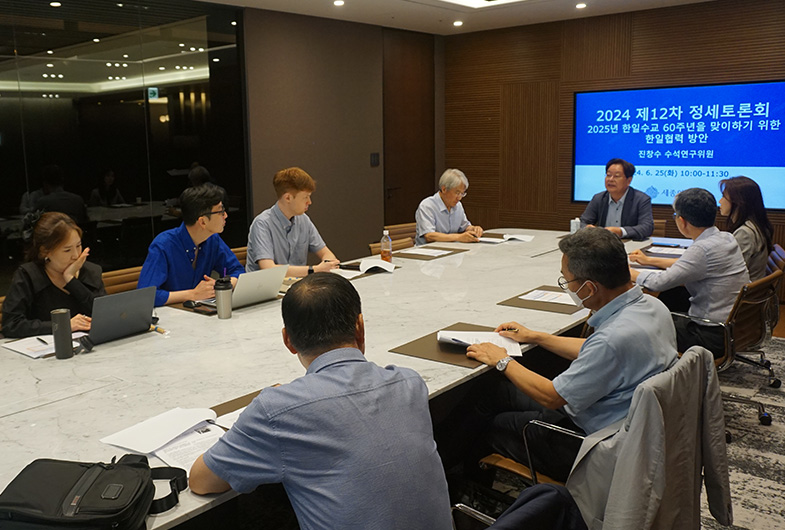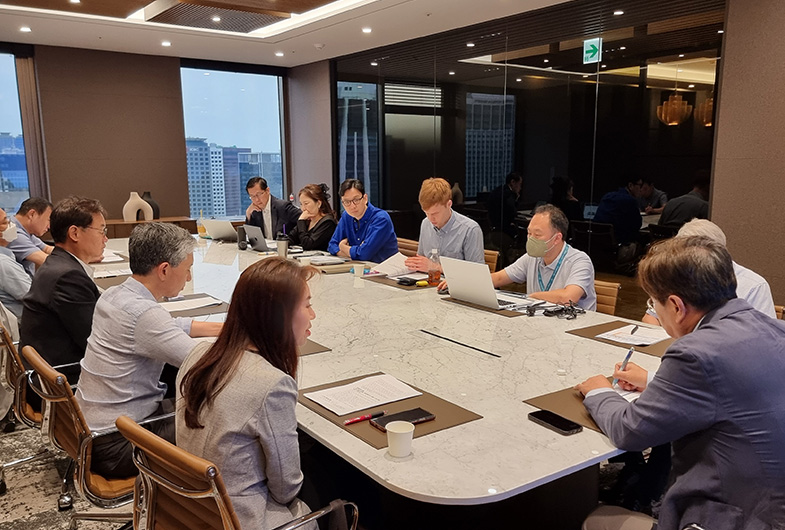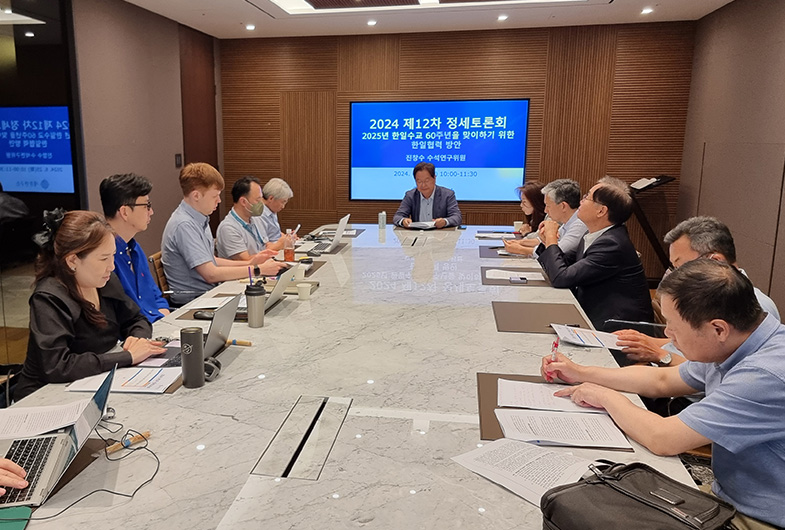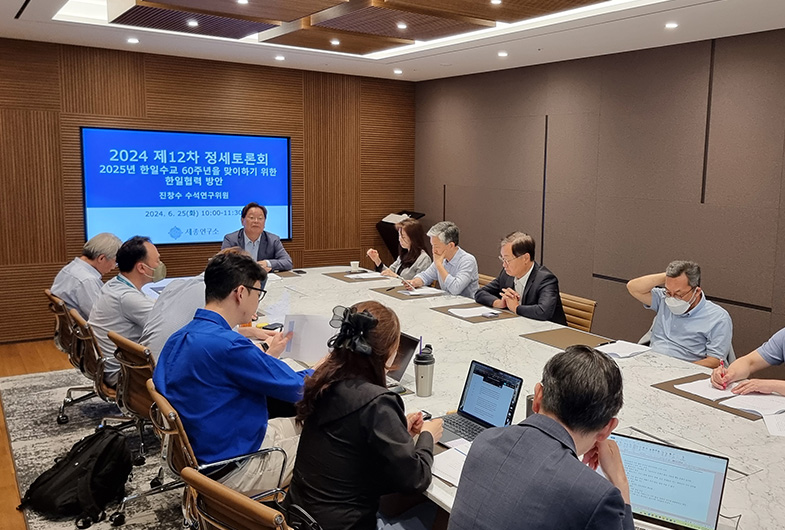On June 25 (Tuesday), Chang Soo Jin, Principal fellow at the Sejong Institute, gave a presentation on "How to Cooperate in Korea-Japan Relations Toward the 60th Anniversary of Korea-Japan in 2025" at the 12th Sejong Institute Colloquium.
The discussion was moderated by Yoon Jung Choi, Director of the Center of Diplomatic Strategy.
The regime change in South Korea, uncertainty in the international situation, and the sense of crisis in Korea and Japan have been factors in the improvement of bilateral relations. However, the improvement in ties at the top level has not been extended to the people's level, and the opposition party's victory in the April 10 general election has left the future of bilateral relations unclear.
In the current confrontation between the democratic powers centered on the United States and the authoritarian powers centered on China, the United States has been strengthening its links with its allies through QUAD and AUKUS. In this process, relations between Japan and South Korea are improving. Still, domestic political instability in South Korea and the instability of Japanese Prime Minister Kishida could affect bilateral relations between Korea and Japan.
Rapid progress toward normalized relations has been made since the establishment of diplomatic ties in 1965, and as the 60th anniversary approaches, there is a need to compensate for and finalize the anomalies in the relationship as soon as possible. Since Japan's strategy for Korea is to manage past historical issues and strengthen cooperation between Japan, South Korea, and the United States, and our diplomacy with Japan is to pursue history reconciliation and comprehensive security, economic, regional, and global issues, it is important to build a relationship that does not significantly affect the fundamentals of bilateral relations even if certain issues arise, and institutional changes in bilateral relations that people can feel are necessary.
